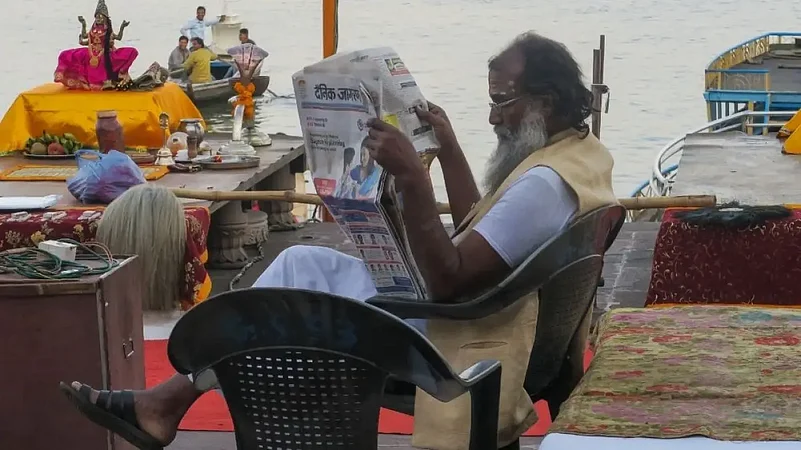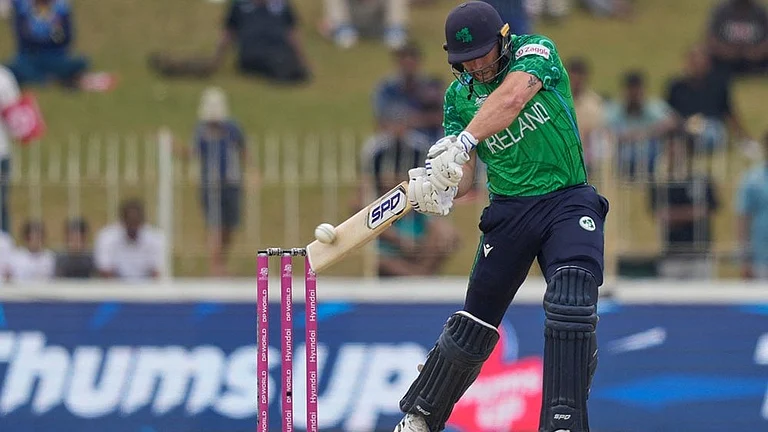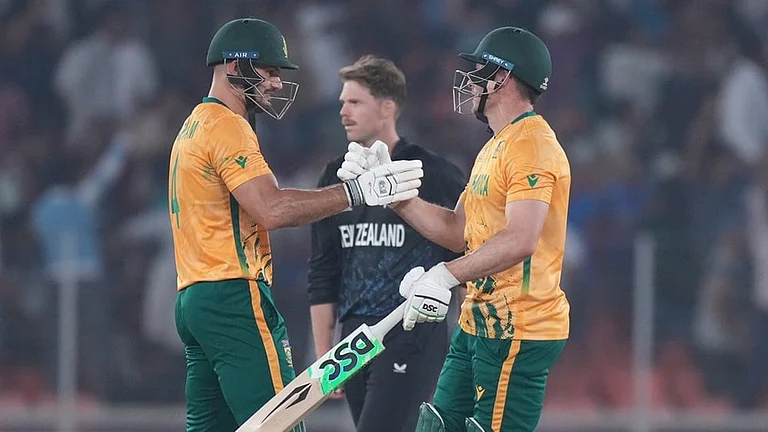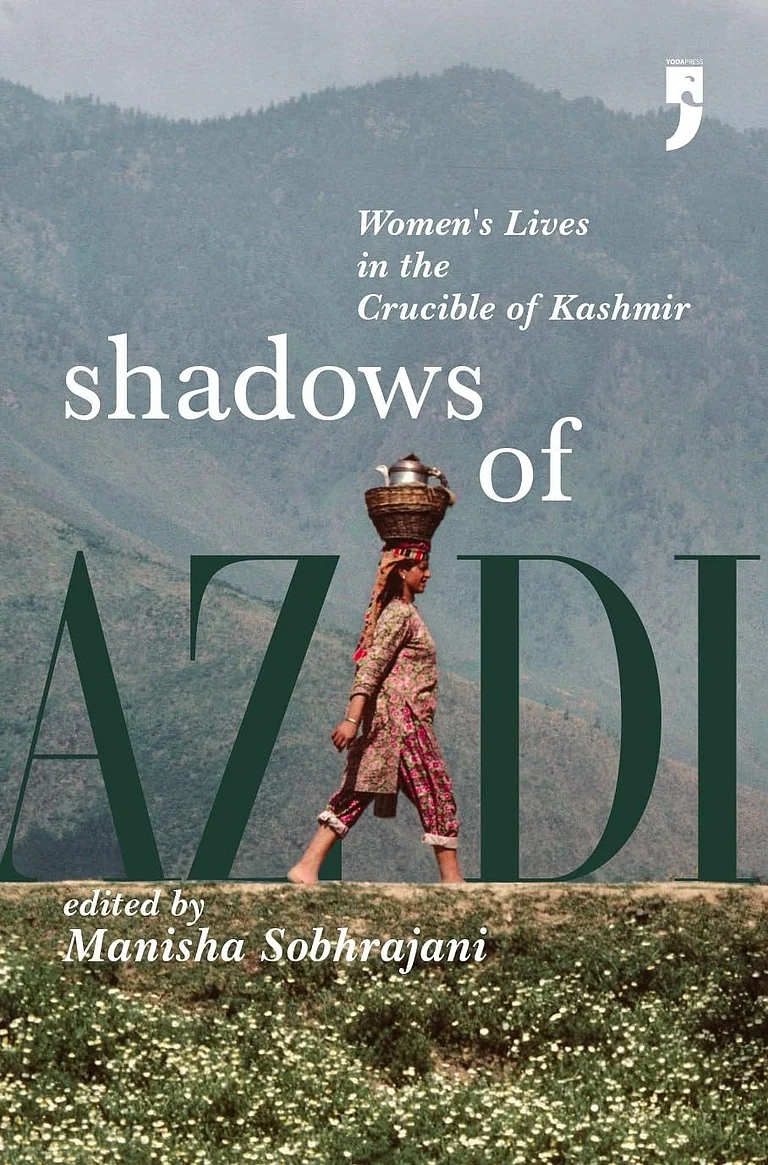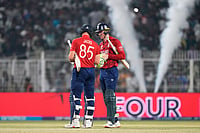How does a language degenerate and why? A language is not merely a collection of words but it includes tone, a certain grammar and expressiveness of being. It represents the nostalgia of culture and the aesthetics of unwritten history. In the case of Bhojpuri, a language of East UP and Bihar, of crores of migrants across India and of crores of Indian diaspora in oceanic countries, the language is struggling with a paradox of cultural morality and social mobility.
In the small Bihari town of Buxar, a recently-married couple has decided to have mutual conversations in Hindi—they have consciously refused to speak Bhojpuri, though both hail from Bhojpuri-speaking villages. It seems that through their marriage, they have outgrown the Bhojpuri language and the culture. Before the marriage, they were ordinary Bhojpuri young populace but now for upward social and cultural mobility they have to abandon their language. It is almost certain that their offspring won’t be speaking Bhojpuri at all. The couple has divorced the language at the time of their marriage. Because the language is degenerating into vulgarity! That, too, due to the most popular Bhojpuri songs! It is a strange case of murder of a language by popular songs.
Why has this situation arisen?
It has become a pattern. It almost seems that the reaction to Bhojpuri songs follows an algorithm. The moment a Bhojpuri song appears, it elicits a strong reaction from the liberal society, often disproportionate to the liberal values. In urban culture, the mere mention of Bhojpuri song is followed by allegations of vulgarity. At the end of the spectrum, there is a group of people from Bhojpuri society who feels that this land should be on perpetual guilt and shame trip—because Bhojpuri songs are outraging the modesty of the culture and there is nothing to be proud of. Thus, in a gathering welcomed by urban aesthetics compounded with poetic talks, if you are from the Bhojpuri land, it is a relief to be left alone, to not participate in the fun going around. You are a mute spectator from Gobarpatti.
The term vulgarity, in the case of Bhojpuri songs, depicts a situation of women wherein they are perpetually mocked, objectified and considered as only sexual objects. The expression is mostly about the love between a husband and a wife, of a paramour, of a former lover, an extra-marital affair or of an unmarried couple exploring their sexuality. However, at the next step, the songs depict the characterisation of lovemaking—including time, place and circumstances of daily lives along.
In an attempt to please the public without using difficult words or synonyms, the composers go for simple words from ordinary lives. The various objects used in daily life such as katora (bowl), kursi (chair), bike, jhaadu (broom) or taala (lock) etc., are used as metaphors for the sexual organs of women. And at first instance, it appears that in most of the songs, the singer is in a perpetual state of sexual arousal and his sole intention is to have sex with the woman in front of him.
However, it is not entirely true. In many of the songs, there is banter between the male and female singers—it is a sexual banter. It sexualises the metaphors of male organs, also. Both the singers express the sensuality and sexuality which is present in their mundane lives. There is a reason that these songs never talk about romancing on the sofa, or on a flight or date trips on cruises or cafes. It is always about having a quick steamy session behind the door, in the closet or in a greenfield etc. It may be a cultural life. Couldn’t it be an inheritor of a folk culture where sexual expression has found meaning in these songs?
It is pertinent to mention that this alleged vulgarity is just a type of the universe of sensuality. The raw sexuality without any frills. But the stigma sticks and screams in your face. The mere mention of Bhojpuri evokes derision.
Cultural humiliation
This cultural humiliation doesn’t stop here, it has percolated down the veins as a self-inflicted karmic injury. Since you are from a land of vulgar songs, to fit in, you have to show yourself other than who you are. Otherwise, the saner society won’t accept you.
One of my software engineer friends, working in Gurugram, says that if you speak Bhojpuri, there is a guarantee that you won’t get a date from Delhi girls or even Delhi-bound girls. I laugh it off but in a way, it appears true when I try to confirm from others. If a person speaks Haryanvi, Punjabi, Rajasthani or any other language or boli, it might be cool and the person may get a date. But if a person speaks Bhojpuri, however erudite he/she may be, gentlemanly or epitome of femininity, there is fairly more chance to be judged. It goes for both genders. I pity the Bhojpuri women more. Allegedly, they are from a land where people make only vulgar songs.
Sometimes, it seems like a parallel caste system of cultural hierarchy in which the Bhojpuri people are at the lowest rung. You are not funny, you are not humorous, you are not classy, you have no history or story, and you are a mute spectator among all the other ethnicities of India. You are a DBC person—the guy who eats daal bhaat chokha all the time and appears for banking exams while his family creates vulgar songs.
Due to these lewd songs, for a person, it is difficult to imagine that any serious talk can be held in Bhojpuri. The moment one opens his mouth in Bhojpuri, it appears that he is going to crack a lewd joke because, in the Delhi sets, people start laughing. One highly-educated NRI friend sends me Bhojpuri songs regularly. She says that she likes the beats of the songs and the fun and frolic of the lyrics. But there it stops. She doesn’t want to know beyond it. The utility of Bhojpuri is that of a vidushak—the court jester.
Experts say that in 100 years, 90 per cent of the languages will die. This is an alarming situation. There is no need to see the data because whoever gets a job stops speaking Bhojpuri. So, it seems that remaining uneducated and unemployed would be the only condition for speaking Bhojpuri in the near future. Because at present, the jobs, education and opportunities seem to be hostile to the Bhojpuri language. It’s not difficult to imagine whether a firm will hire a Bhojpuri-speaking person at a higher level unless he/she hides his/her Bhojpuri tone.
The Bhojpuri people are assimilating into other cultures and languages. It is as if the entire population is dying and reincarnating in other languages. Speaking your own language is tribal loyalty. It’s about preserving your cultural memories. Its demise would be a personal tragedy for the nation.
The Language as a carrier of history
If a language has stayed a few centuries without documentation then there must have been some genius behind it. Even without documentation, there is a grammar, a unique identity of a language. It has its own grammar defined in the minds of the people which is its beauty. It’s a powerful tool for connection and a sense of community.
In the case of Bhojpuri, it carries the history of the villages, of the commoners which are otherwise not documented anywhere. Who cares about the common Bhojpuri people of the 16th or 17th century? Who will think and write about them? No one, except the Bhojpuri stories and anecdotes which carry the genes of a culture.
I remember that my grandmother used to tell us stories of our rural setting, a nondescript rural in the Bhojpuri land of Ghazipur district of Uttar Pradesh; how the village was saved by a young woman and her older guru from the wrath of the “Gora-Sikh” by jumping into hot boiling oil. For a long time, I didn’t understand what she meant by “Gora-Sikh” but I realised that she was describing the White officer and the Sikh sepoys of British times. She narrated the history of our village as if it was a separate country that had been invaded.
The Bhojpuri as a traveller language
I have an early memory of a President from Mauritius—the descendant of Bhojpuri people who were packed off to Mauritius, Fiji, Trinidad, Suriname, South Africa and other places in the 19th century to serve as indentured labourers on sugarcane and rubber plantations. He came to visit his ancestral home in Buxar. Of course, the residents of his house were some other people not related to him.
Standing there as a 12-year-old, I didn’t know whether to be proud of that visit or was secretly jealous of him that he has gotten away from that place. Being from a Bhojpuri land, you always wonder whether you are erasing your history or trying to add something to it.
What is it there that doesn’t let you be proud of your own history and culture? If you talk to a migrant labourer or a journalist or a software engineer from the place, all seem to be running away from their identities. No one wants to be associated with that place. People do not want that ‘tone’ in the voices of their children. They want a full-fledged Delhi accent.
Is it the reason that the bonded labourers who were packed off to far oceanic countries never returned to their homelands, even after earning a lot of money? I wonder whether those people are still discriminated in those places. Do they remember their history beyond the ‘Chutney music’—a Bhojpuri-French combination, a reminiscence of colonial past?
A person from Mauritius tells that there too Bhojpuri is on the decline because the locally-spoken Kreol is very popular. Kreol has an affinity to the French language and due to the land’s colonial past, it is considered to be of higher status. Speaking Bhojpuri is not.
Paradox: Vulgarity is an alternative tongue
I hate the vulgarity of Bhojpuri songs yet at the same time, I like them. I try to understand this paradox. It’s like having fun from a distance. I am enjoying the humiliation of a language.
So, here we may see a paradox. It appears that the people only want to appreciate the massive success. If you live as an underachiever, you might be scorned. Worse, if you are a folk singer or represent the low-earning class, you can’t express your sexuality. In the case of Bhojpuri, people often cite the example of Nirgun songs of Bharat Sharma, that they represent true Bhojpuri culture, not the modern songs which talk about sexuality mostly. On the one hand, the civil society is fighting for sexuality, on the other hand it is not able to accept the rural version.
Is there a culture of songs, from any language, which doesn’t talk about sexuality or sensuality?
Vulgarity is an alternative tongue. Earlier, it alluded to the criminal classes but as it appears, in the Kaliyuga everybody is a criminal, vulgarity is no more related to criminals. But it hasn’t lost its classist approach since culture has a restricted definition. The Womaniya song from Gangs of Wasseypur is not exactly Bhojpuri but carries the impression of Bhojpuri. The word Womaniya has been assumed to be Bhojpuri due to the suffix in the word woman. However, since it was presented in a movie, it was readily accepted. But what about mehraru, which is the actual word in Bhojpuri for a woman? It carries the sober yet hilarious attributions. And this happens to be the strength of Bhojpuri. We just add a suffix ‘wa’ or ‘iya’ into a word and make it our own. The French Prime Minister Emanuel Macron will be Macron-wa and he would now be a Bhojpuri man. The moment you say Macron-wa, you could easily visualise his body language.
Our freedom of expression carries the dissent, the revolution but detests the vulgarity. Bhojpuri songs are not revolutionary but they seem to have adopted vulgarity. It appears that it’s a kind of rebellion against classist culture.
In popular notion, only the rickshawallahs, the vendors and the workers speak Bhojpuri, so they have rebelled. Ace lexicographer Guddu Rangila, who has a knack of converting any mundane word into a sexual term, is the pioneer of this genre. The Lord of Bhojpuri lewd singing, Rangeela is a Che Gwera if vulgarity is rebellion.
Now, in the present situation, imagine what will happen if the singers such as Khesari Lal Yadav, Kalua, Kalpana, Ritesh etc., stop singing Bhojpuri songs and get other avenues of generating money? There won’t even be lewd songs so what will happen to Bhojpuri?
The paradox reloaded
The love for Bhojpuri remains in our imagination rather than in our practices. A time may come when we will create, listen and enjoy Bhojpuri songs with familiarity but while speaking it may sound alien to us. We won’t feel proud while speaking it.
Now there is a catch. Bhojpuri songs have created a miracle. Till recently, these songs were looked down upon for being crass and vulgar but now they are being appreciated and emulated because most of the songs cross millions of views in a day of release on YouTube. Now there are many fans of Bhojpuri songs. So, was it about the massive success only? Further, if a Bhojpuri singer translates the allegedly lewd Bhojpuri song into English and sings it, then it is a given that it would be an internet sensation across the world. How many campaigns were run against the song I am a hunter she wants to see my gun from the movie Gangs of Wasseypur which has a similar background as that of Bhojpuri culture? It was a popular song.
It is disconcerting that all these years you have been trying to cognitively dissociate yourself from the haunting past of vulgarity and crudeness and years later when you think that you are free now, you find that the same vulgarity and crudeness is now cool and the people are grooving at its beats. Wonderful if it is!
But there is a problem. Success aside, this scorning has created a permanent void in Bhojpuri identity. However, the fact that issues of identity haunt a population a few centuries later—which is visible all over the world—is terrifying. The horrifying hit-back of a language won’t be sustainable for our society. So, one day the ghost of the Bhojpuri language may rise from its ashes to claim its space in the most inopportune time. Before that, it’s better to see the beautiful aspects of preserving this language.
The coolness factor
The fact is that there is a cool history of Bhojpuri land, starting from the mythologies to Mughal history to the British times to Naxal movements. There has been progressive literature, Bhojpuri ghazals, accounts of soldiers and public leaders. The Bhojpuri land has been the mother of Naxal resistance. It has a proud history of fighting for the poor. It is a land of rebels—baagis. Mangal Pandey of the 1857 mutiny and Chitu Pandey of the 1942 Quit India movement, both are from Balia. In Buxar, there was a princely Badri Singh Baagi. We are obsessed with rebels or baagis. The Bhojpuri language itself is a rebellion against norms.
Further, the nationalism of Bhojpuri is about mingling because they travel so much in India in various states due to seasonal work. It carries the uniqueness that the people adopt the culture of other places very easily. It is the language of ordinary people. Politically-incorrect people. Not dominated by ideologies though in Bhojpur the first Naxal leaders were born and at present it has a lot of RSS supporters.
In popular news, it seems that the Bhojpuri land is a big swirling cesspool which is abhorrent to say the least. But, was history waiting for YouTube to recognise the humour and fun of Bhojpuri people? Here again, I fear for the language. Because the script, Kaithi, of this Bhojpuri language, once popular since the Mughal times, has been erased. The last person I knew, who was a maestro of Kaithi, is dead. Because slowly it got out of our lives and remained only in old documents. And this is the actual fear. The success of Bhojpuri songs would dominate YouTube but the scorn might erase it from our lives and from the lives of our coming generations.
The uniqueness of the language
I often think about what Babu Kunwar Singh would have said to the British officer who offered to be a resident there in his riyasat? Since he was a Bhojpuri-speaking king, he must have said, Jaa na marde, aapan kaam kara. This is a very popular phrase in Bhojpuri land, which means, “Go man, mind your own business”. But the Bhojpuri version contains such disdain that the victim becomes a laughing stock.
A decade ago, as a Big Boss contestant Ravi Kishan had said, Jindagi jhand ba, tabo ghamand ba and it became extremely popular due to its philosophical meaning. In Bhojpuri, there is such philosophy in general lives placed without any effort.
There is a uniqueness to a language, there are words which have only local cultural meanings. In Bhojpuri there is one such word, athi. It varies with a few kilometres into athi, athu, uthu etc. It has such a wide range of meanings that it acts as a code word among the speakers. It can virtually refer to anything. And depending on the setting and the environment, the speakers understand. It’s hard to believe, but in general Bhojpuri conversations, athi is the most important word. There is no Hindi or English translation of this word. It’s a pure Bhojpuri word with its cultural meaning. Often we talk about the survival of the fittest but what about the coolest? Athi is a super-cool word.
In a regional language, often the meanings of words are based on the sounds. Such as kadbach kadbach for the sound of horse riding. Bhojpuri songs carry this trait and those often give ephemeral meanings to the words. And this is the reason that Bhojpuri songs sexualise everything by giving ephemeral meanings to different objects. It is a cultural trait. But they have overused it, almost butchering the language.
So, there is nothing black and white, lewd and non-lewd but there is a systematic gradual decline of a language which is visible because people are refusing to speak it as a conscious choice.
Despite everything, the pain remains that the damage is being done and somehow we are not able to prevent it. All the efforts are like silent missions. We will feel for Bhojpuri but won’t speak it. The great Hindi poet of Bhojpuri land Dhoomil had written back in the 60s, which sums our predicament:
हाय! जो असली कसाई है
उसकी निगाह में
तुम्हारा यह तमिल-दुख
मेरी इस भोजपुरी-पीड़ा का
भाई है
भाषा उस तिकड़मी दरिंदे का कौर है
जो सड़क पर और है
संसद में और है
इसलिए बाहर आ!
संसद के अँधेरे से निकलकर
सड़क पर आ!
भाषा ठीक करने से पहले आदमी को ठीक कर
आ! अपने चौदहों मुखों से
बोलता हुआ आ!
ओ देश के पोर-पोर में दुखते हुए गूँगे जुनून!
(Oh! In the eyes of the real butcher
This Tamil- grief of yours
Is brother of my Bhojpuri-sorrow
Language is the food of that cunning one
Who is a different man on the road
And a different one in the Parliament
So come out!
Come on the road out of the darkness of the Parliament
Fix the man before you fix the language
Come speaking with all your fourteen mouths
Come, the dumb passion that hurts in the knuckles of the country!)






